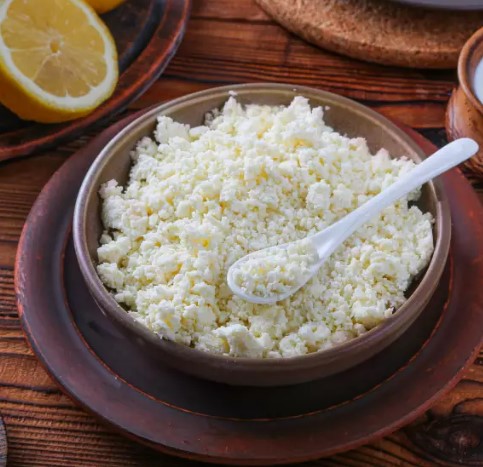Antibiotics in cottage cheese

Photo is illustrative in nature. From open sources.
Cottage cheese is one of the most popular and healthy dairy products. It is rich in protein, calcium, and other nutrients that are essential for maintaining healthy bones, muscles, and organs. However, recent studies have shown that some curd samples may contain traces of antibiotics.
Antibiotics are medicines that are used to fight bacterial infections. They can be useful when you need to quickly get rid of the disease. However, if antibiotics are used incorrectly or at incorrect doses, they can lead to various health problems such as allergies, dysbiosis, reduced immunity, and others.
In recent years, many dairy producers have begun using antibiotics as a prophylaxis against bacterial infections in animals. This may result in some curd samples containing traces of antibiotics.
How does this affect our health? First, antibiotics can cause allergic reactions and other side effects in people who consume foods containing traces of antibiotics. Second, frequent consumption of foods containing antibiotics can reduce the effectiveness of these drugs in fighting bacterial infections.
Also, the use of antibiotics as a prophylaxis can lead to the development of bacterial resistance to these drugs. This can make it harder to treat bacterial infections in the future as the drugs no longer work.
What can be done to avoid eating cottage cheese with antibiotics? There are several ways. First, you should choose products from manufacturers that do not use antibiotics in the production of dairy products. Secondly, you should pay attention to product labels and study their composition. If cottage cheese contains antibiotics, it should be avoided or reduced in the diet.
In general, eating cottage cheese is good for health, but you need to be attentive to its quality. By avoiding foods containing antibiotics, we can protect our health and prevent future health problems.
Read together with it:
- My parents' behavior during quarantine made my husband angryWhen my whole family found themselves in self-isolation, I was somewhat happy. There was never enough time to rest,communication with children. And household chores have piled up.Once the shock of fear of the coronavirus had worn off a bit, we enjoyed doing nothing. But the idyll didn't last long, a...
- My granddaughter's bad parentsMyThe son and his wife lived for only two years. However, they managed to have a child, whom heThe wife took it for herself after the divorce. The granddaughter was only one year old at the time.The divorce was difficult, in court they voiced a banal reason - "their personalities did not get along"....
- My husband reproaches me for being on maternity leaveMy husband openly reproaches me for being on maternity leave. The initiative to have a child was entirely his. He was initially looking for a woman to start a family, have children with, and he found me. Already in the first year of marriage he was worried that there were no children for a long time...
- I betrayed my friend and I don’t know how to make amendsBetrayed a close friend, one might even say a kindred spirit. Her name is Vika.We met in the 6th grade (I transferred to another school). At first I didn't really like her, and she didn't like me either, but gradually we got closer and by the 8th grade we were already getting along great, and by the...
- How to forget the past and improve your life?Over the past 5 years, I have achieved nothing and made absolutely absurd, illogical decisions - I moved to another country, wearing rose-colored glasses, without thinking at all, I decided to change my specialty, although everything was fine with me. I also did not build a personal life, all attemp...
- My husband is losing money and I am paying his loansI am 28 years old, my husband is 35. We have three children - 2 boys and a younger daughter. The eldest son is four years old, the middle one is two, the youngest will be 2 months old.The husband plays slot machines and spends all his earnings theremoney . I'm responsible for his loans, which I took...

